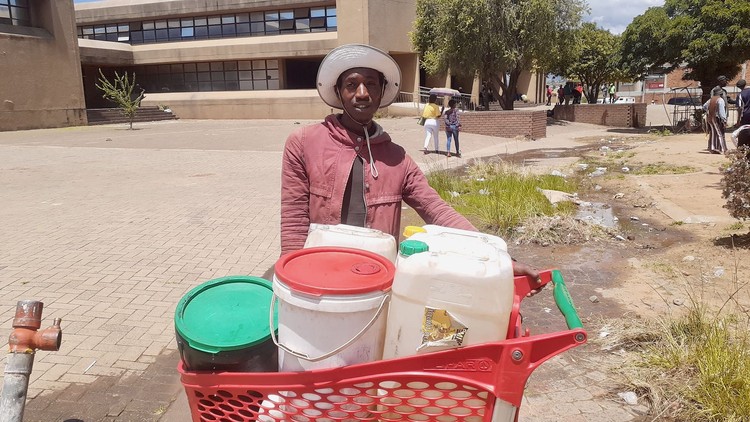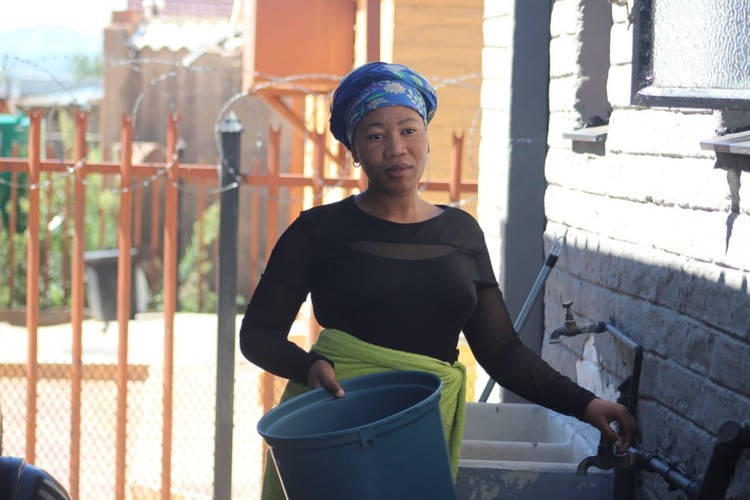
21 February 2024
Thapelo Dlamini, from Phuthaditjhaba township, travels five kilometres to fetch water for himself and his neighbour at Setsing shopping centre in Qwaqwa. Photos: Becker Semela
In about 90 villages with more than 140,000 households around Qwaqwa, Free State, taps have been dry for many months or only have water occasionally.
Makeneng village hasn’t had water for years. Resident Diengwane Mofokeng has to hire a bakkie to travel about 10km to neighbouring villages with boreholes, such as Thabana Tshwana or Thabure. She buys water for R30 for 20 litres.
“Truly, we are living in a desert called Qwaqwa,” says Mofokeng.
In Kudumane and Poelong, taps have water only once a month and the municipal water tanker also only comes monthly, leaving more than 20,000 households struggling with minimal water supply.
Resident Thabo Letseka said that in Kudumane they buy water from a private truck and pay R20 per 20 litres. Letseka is unemployed and says he can hardly afford it.
In Monontsha, communal water tanks had been empty for a month, according to Councillor Moshe Lefuma (DA). He said a tanker is needed “at least two or three times a week”, not monthly, to supply the needs of the community.
Maluti-a-Phofung Local Municipality spokesperson Kelopile Mongake confirmed that the whole of Qwaqwa was experiencing water shortages.
She said rationing was introduced in December when water in the FikaPatso Dam dropped to 61% of capacity. Ageing infrastructure, loadshedding and maintenance requirements are also hampering supply.
She said efforts are underway to address the issue but comprehensive measures were needed to achieve a permanent solution.
Earlier in February, Rise Mzansi and residents marched to the municipal offices to hand over a memorandum demanding water. They found the municipal building was also without water.

Diengwane Mofokeng says the village has been without running tap water for years.